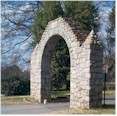Parent Pages
Sibling Pages
Child Pages
Operation Squalor, as you will see, is about public nuisances.
The case law is not a model of clarity about just what a nuisance is. The basic rule seems to be that any condition that harms property value is a nuisance. If it only harms the property of one or two folks, it's a private nuisance. If it harms the public in general, it's a public nuisance.
Into this common law murk, the Virginia statutes shine a beam of clarity: A house of prostitution is a public nuisance. Code § 48-7. [Note: That squiggle, "§," means "section."] (See Code § 15.2-908.1 for one of the options the City has to deal with a bawdy place.) A nip joint is a nuisance. Code § 4.1-317. An unlawful sign is a nuisance. Code § 33.1-375. An ad that says a person is not welcome in any place because of his religion is a nuisance. Code § 57-2.1. And, perhaps more useful, a drug house is a public nuisance. Code § 18.2-258. Beyond these, you can get action for anything you can persuade a jury is a nuisance.
At common law, it was a crime to maintain a public nuisance. Virginia has codified this law at Code §§ 48.1 et seq. The process starts with a written complaint from five citizens. The court convenes a grand jury to consider the situation.
If upon a full investigation of the complaint mentioned in §48-1 the grand jury is satisfied that the nuisance complained of is of a public nature, it shall proceed to make presentment against such person or persons as they may find have created or caused such nuisance.
Code § 48-2. If the jury convicts a person of creating, causing, or permitting the nuisance, the court can fine him up to $10,000 and it must order the abatement of the nuisance. Code § 48-5.
Richmond has a Justice Department grant to use these statues. They call it "Operation Squalor." They are particularly interested in using the statutes to deal with drug houses, especially in the apartment buildings, such as some over on Chamberlayne Avenue, where the landlord's loose control allows the tenants to deal drugs and remain as tenants.
Just a whiff of this process was enough to solve the problems with drug dealing at the Shirley Manor and at the MacArthur Apartments in Bellevue. Where the landlords have been less cooperative, the results have been less successful. The BCA got a presentment under this program for 1603 Claremont, although Squalor probably was not the right tool for the job (The owner was the subject of an arrest order, so he was hard to find. It is hard to prosecute somebody you can't find. The City Attorney solved this by filing a civil nuisance suit and tracking down the owner. We have a page devoted to the -- very positive -- outcome). Our neighbors in Ginter Park used squalor to try to deal with one of the problem apartment complexes on Chamberlayne.
We have minutes of the meetings between neighborhood associations and the Commonwealth's Attorney to talk about Operation Squalor.
Last updated 02/24/02
Please send questions or comments to John Butcher
